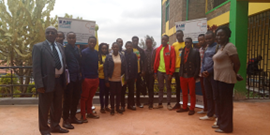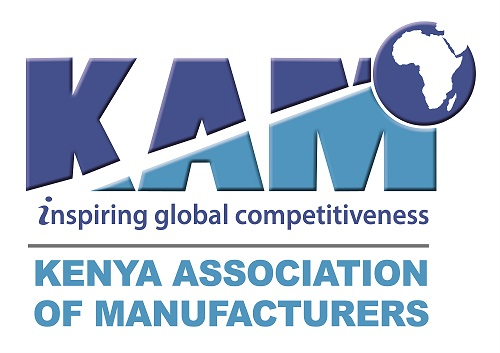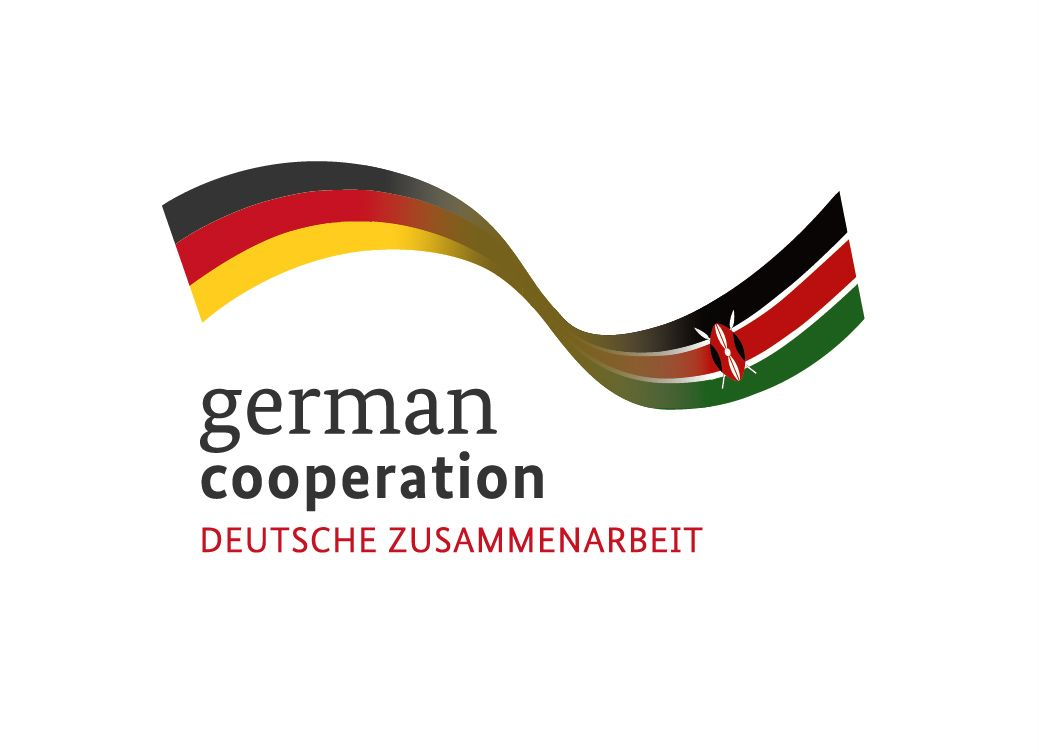
Promoting Youth Employment Through Technical Human Capital Development
Kenya Association of Manufacturers (KAM), Kenya
Overview
Manufacturing is a key pillar of Kenya’s economy. Through its Big 4 Agenda and Vision 2030, Kenya’s government has identified manufacturing as a way of reducing youth unemployment and increasing job opportunities.
According to the Kenya National Bureau of Statistics, direct manufacturing accounts for 15.9% of the country’s GDP. Manufacturing also overlaps several other sectors.
The Kenya Association of Manufacturers (KAM) is an umbrella body representing over 40% of the manufacturing and value adding industries in the country. With funding from the German Ministry of Economic Cooperation and Development (BMZ), KAM has implemented a youth-focused intervention since 2017 called “Promoting youth employment through technical human capital development”, the project has trained more than 800 TVET graduates in work readiness and placed them into internship and apprenticeship training. More than 40% of these graduates are now meaningfully employed. An unexpected spin-off is the number of young people who are self-employed following training and internship.
To reduce the mismatch between industry needs and the skills of TVET graduates and increase training in demand-driven skills, the Kenyan government identified the Competency Based Education and Training (CBET) model for technical and vocational education. In 2019, KAM piloted the placement of students in three key trades.
The overall objective of this project is to increase youth employability through entrepreneurship, linkage to industrial attachment, internships, and access to technical jobs. This is achieved by improving the connection between employers and the labour market, and providing feedback to technical institutions from employers on their present and future labour needs so that institutions can equip graduates with skills that match market needs.
The project targets young graduates from the CBET programmes developed by GIZ in collaboration with Ministry of Education (TVET CDACC) and being piloted in selected TVET institutions. Recent graduates of conventional TVET schools are also considered.
The main implementing partners are KAM and four TVET institutions (Meru National Polytechnic, Nyeri National Polytechnic, Technical University of Mombasa and St Kizito Vocational Training Institute).
The project has been in the pilot phase and is expected to be completed in 2023.
Good practice approach
The CBET curricula were developed with industry players taking a leading role through sector skills advisory committees. Based on the curricula developed, pilot training programmes were rolled out in the implementing training providers. During the three months’ classroom training, KAM mobilised its members and other relevant companies in preparation for practical attachment. A dedicated industry liaison officer (ILO) regularly visits companies to seek opportunities for practical attachment and internships.
Trainees also receive a module of work readiness and soft skills to improve their employability. These include time management, communication, people management, presentation skills and CV writing.
The trainees are then matched to various companies for practical attachment, internships and jobs through job bazaars organised by KAM or by sending CVs to companies. During practical attachment, the trainees are supervised by experienced technicians. This training further improves the technical skills of graduates and helps them find formal employment.
KAM collects feedback from the companies on the performance of the beneficiaries, what worked well, and areas of improvement. This is shared with the training institutions for continuous improvement of training delivery.
Implementation through an umbrella organisation such as KAM provides a means through which member companies are encouraged to participate in the objective of increasing youth employment.
Some industries have recognised the contribution trainees make to their business growth and have opted to pay them stipends. Others provide transport services and meals.
Key results
i. Placement of TVET graduates in internships: 1 004 out of 1 760 (phase 1 and 2).
ii. Placement of TVET graduates into jobs: 1 004 out of 1 760 (phase 1 and 2).
iii. With additional support through business development services, some beneficiaries have registered SMEs and now run their own businesses.
Lessons learnt
Success factors
The involvement of the private sector before, during and after training results in better transition of the trainees into formal employment. This is achieved through active dialogue with the companies by the project’s ILO. Industry sensitisation forums explain the benefits to companies of supporting skills delivery.
The soft skills and work readiness training for graduates prior to attachments and internships.
The high potential to influence policy through KAM.
Challenges/barriers
Limited industries in remote parts of Kenya pose a challenge to trainees from these regions who have to relocate to regions with industries to which they can be attached. Most of them are unable to sustain themselves. GIZ has supported them with stipends; however, this is not sustainable in the long term.
Declining economic growth has reduced companies’ expansion strategies and ability to create jobs.
Kenya is in a paradigm shift from conventional training to competency-based training. However, most companies have not grasped this concept.
Moving forward
Through KAM, GIZ lobbies industries to support trainees during internships/attachment. This has received a mixed reaction from the companies, with some agreeing to provide stipends.
Most ILOs double up as trainers. The project intends to develop the capacity of ILOs to engage the industry.
Resources
See photos below
Photos showcasing our work
Trainees on Practical attachment in industry

Work readiness and soft skills

Work readiness and soft skills



Contact details
Email: eddy.oloo@giz.de; thomas.jaeschke@giz.de
joyce.njogu@kam.co.ke; info@kam.co.ke


